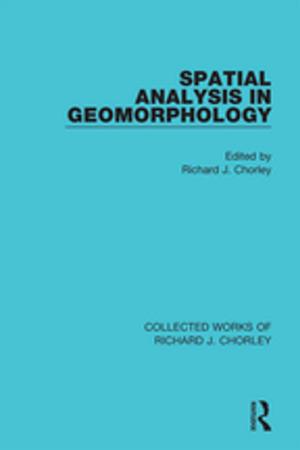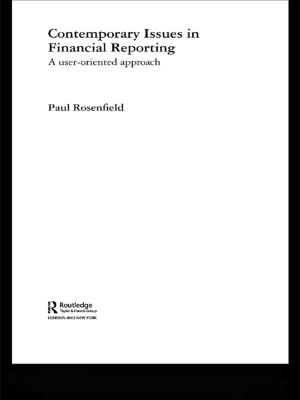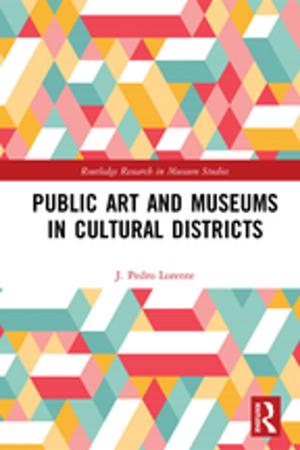| Author: | ISBN: | 9781351761932 | |
| Publisher: | Taylor and Francis | Publication: | June 26, 2017 |
| Imprint: | Routledge | Language: | English |
| Author: | |
| ISBN: | 9781351761932 |
| Publisher: | Taylor and Francis |
| Publication: | June 26, 2017 |
| Imprint: | Routledge |
| Language: | English |
The Routledge Companion to Music Cognition addresses fundamental questions about the nature of music from a psychological perspective. Music cognition is presented as the field that investigatesthe psychological, physiological, and physical processes that allow music to take place, seeking to explain how and why music has such powerful and mysterious effects on us. This volume provides a comprehensive overview of research in music cognition, balancing accessibility with depth and sophistication.
A diverse range of global scholars—music theorists, musicologists, pedagogues, neuroscientists, and psychologists—address the implications of music in everyday life while broadening the range of topics in music cognition research, deliberately seeking connections with the kinds of music and musical experiences that are meaningful to the population at large but are often overlooked in the study of music cognition. Such topics include:
- Music’s impact on physical and emotional health
- Music cognition in various genres
- Music cognition in diverse populations, including people with amusia and hearing impairment
- The relationship of music to learning and accomplishment in academics, sport, and recreation
- The broader sociological and anthropological uses of music
Consisting of over forty essays, the volume is organized by five primary themes. The first section, "Music from the Air to the Brain," provides a neuroscientific and theoretical basis for the book. The next three sections are based on musical actions: "Hearing and Listening to Music," "Making and Using Music," and "Developing Musicality." The closing section, "Musical Meanings," returns to fundamental questions related to music’s meaning and significance, seen from historical and contemporary perspectives. The Routledge Companion to Music Cognition seeks to encourage readers to understand connections between the laboratory and the everyday in their musical lives.
The Routledge Companion to Music Cognition addresses fundamental questions about the nature of music from a psychological perspective. Music cognition is presented as the field that investigatesthe psychological, physiological, and physical processes that allow music to take place, seeking to explain how and why music has such powerful and mysterious effects on us. This volume provides a comprehensive overview of research in music cognition, balancing accessibility with depth and sophistication.
A diverse range of global scholars—music theorists, musicologists, pedagogues, neuroscientists, and psychologists—address the implications of music in everyday life while broadening the range of topics in music cognition research, deliberately seeking connections with the kinds of music and musical experiences that are meaningful to the population at large but are often overlooked in the study of music cognition. Such topics include:
- Music’s impact on physical and emotional health
- Music cognition in various genres
- Music cognition in diverse populations, including people with amusia and hearing impairment
- The relationship of music to learning and accomplishment in academics, sport, and recreation
- The broader sociological and anthropological uses of music
Consisting of over forty essays, the volume is organized by five primary themes. The first section, "Music from the Air to the Brain," provides a neuroscientific and theoretical basis for the book. The next three sections are based on musical actions: "Hearing and Listening to Music," "Making and Using Music," and "Developing Musicality." The closing section, "Musical Meanings," returns to fundamental questions related to music’s meaning and significance, seen from historical and contemporary perspectives. The Routledge Companion to Music Cognition seeks to encourage readers to understand connections between the laboratory and the everyday in their musical lives.















